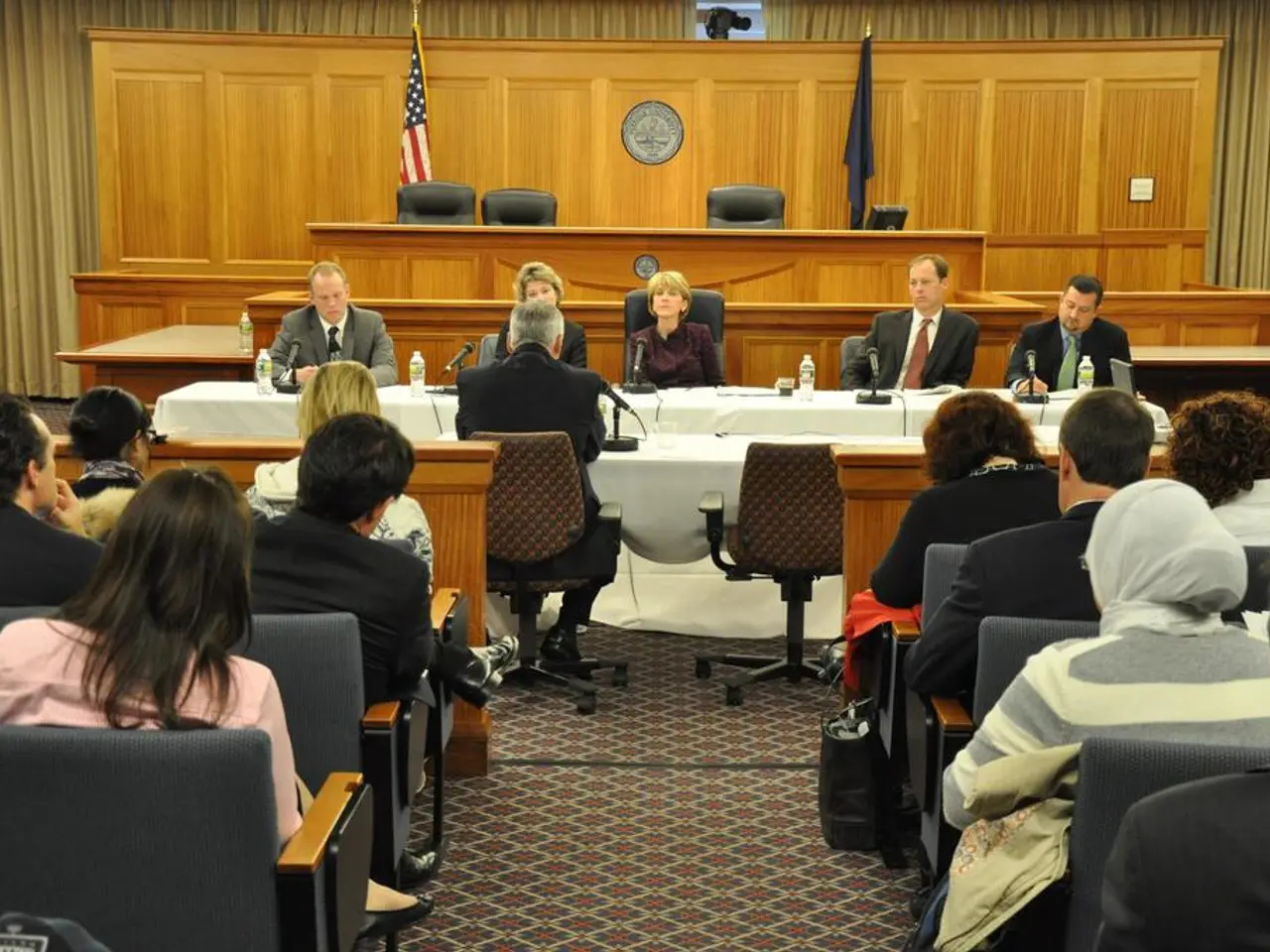Zelenskyy, Ukraine's president, set to convene with Trump on Monday, following a US-Russia summit that failed to achieve a ceasefire in the ongoing conflict
U.S.-Russia Summit in Alaska: A Step Towards Dialogue, But No Imminent Peace Deal
Ukrainian President Volodymyr Zelenskyy met with U.S. President Donald Trump on Monday, marking his first visit to the U.S. since Trump publicly berated him. The summit in Alaska, which also included Russian President Vladimir Putin, was a significant diplomatic milestone, opening more direct dialogue between the three nations.
Despite this progress, no formal peace agreement has been reached between Ukraine, the United States, and Russia. According to reports, Trump expressed his readiness to provide security guarantees to Ukraine and emphasised the importance of involving European leaders in the peace process.
The Kremlin, however, insists that a peace agreement between Russia and Ukraine must be signed or guaranteed by major powers, especially permanent members of the UN Security Council. Trump acknowledged that sanctions would no longer be seen as effective to force Moscow to halt the war.
The U.S. and Russia have also been exploring possible energy deals alongside peace talks, including discussions on sanctions relief and projects like Exxon and Arctic LNG 2. Some analysis argues that the U.S. administration could bolster leverage by intensifying sanctions on Russian oil to push for a genuine peace deal.
However, violence continues on the ground, causing frustration even among negotiators. Trump expressed anger at Putin due to ongoing Russian strikes in Ukraine despite peace efforts. EU foreign policy chief Kaja Kallas stated that Russia has no intention of ending the war anytime soon.
Trump has shifted his position to advocating for a peace agreement instead of a ceasefire to end the 3 1/2-year-old war in Ukraine. He suggested that the onus for achieving a peace agreement might be on Zelenskyy and Europe. European leaders, including France, the U.K., and Germany, are ready to work with Trump and Zelenskyy towards a trilateral summit with European support.
In a statement, major European leaders emphasised that international borders must not be changed by force. They also reiterated that Ukraine must have ironclad security guarantees. The French, the U.K., and Germany will co-host a video call of so-called "coalition of the willing" nations to help monitor and uphold any deal to end fighting.
Laurie Bristow, former British ambassador to Russia, stated that Putin has broken out of international isolation and is back on the world stage as one of two global leaders. Despite these diplomatic efforts, Russian troops have accelerated their gains, capturing the most territory since the opening stages of the war, since spring. Putin has not made any commitments to end the war.
In a "long and substantive" conversation with Trump early Saturday, Zelenskyy emphasised the importance of involving European leaders in the peace process. Trump reiterated that there will be "very severe consequences" for Russia if Putin doesn't agree to end the war. As of late August 2025, a concrete peace deal is still elusive, and significant challenges remain both diplomatically and on the battlefield.
Read also:
- Weekly happenings in the German Federal Parliament (Bundestag)
- Southwest region's most popular posts, accompanied by an inquiry:
- Discussion between Putin and Trump in Alaska could potentially overshadow Ukraine's concerns
- Massive 8.8 earthquake hits off the coast of Russia's Kamchatka Peninsula, prompting Japan to issue a tsunami alert.








